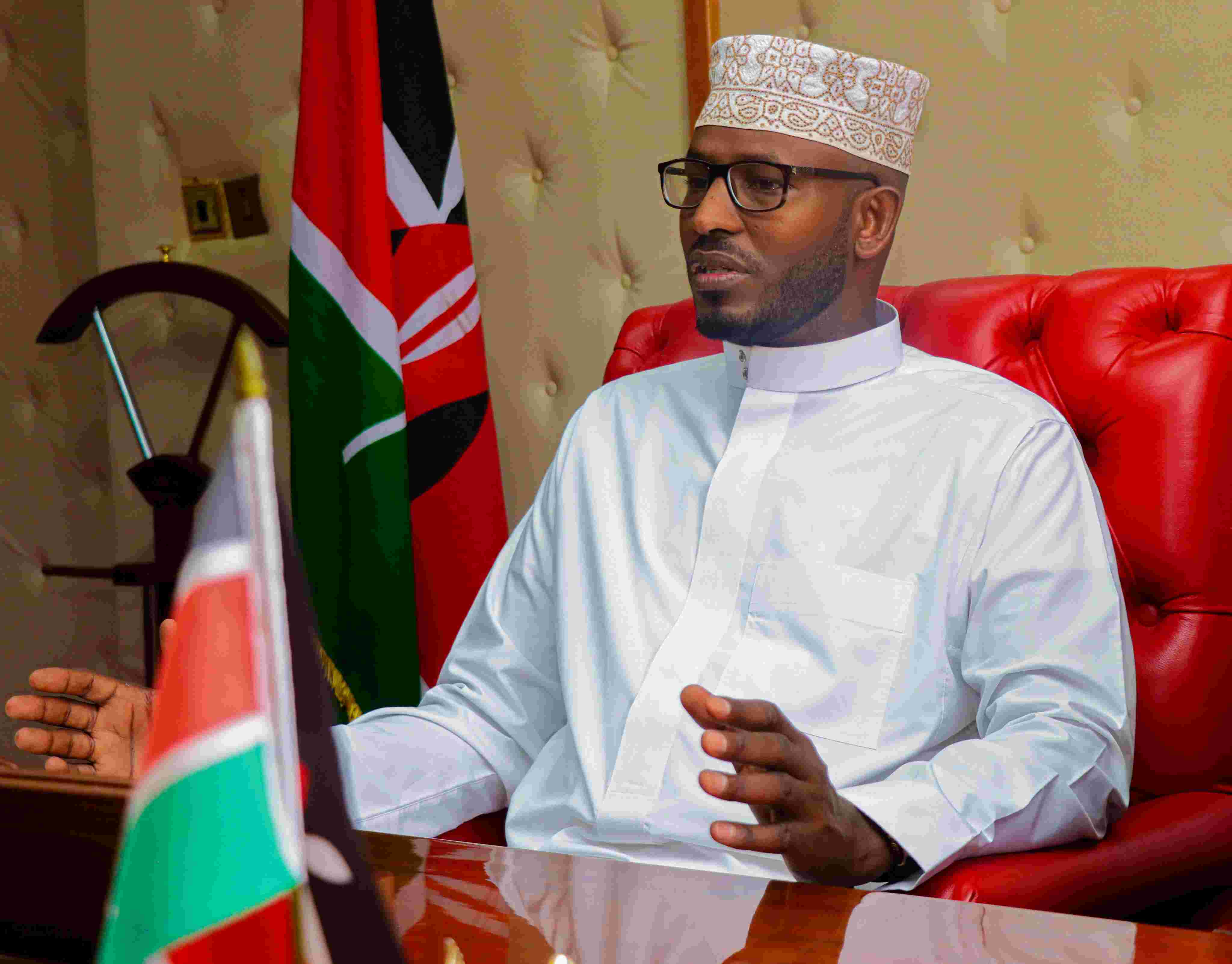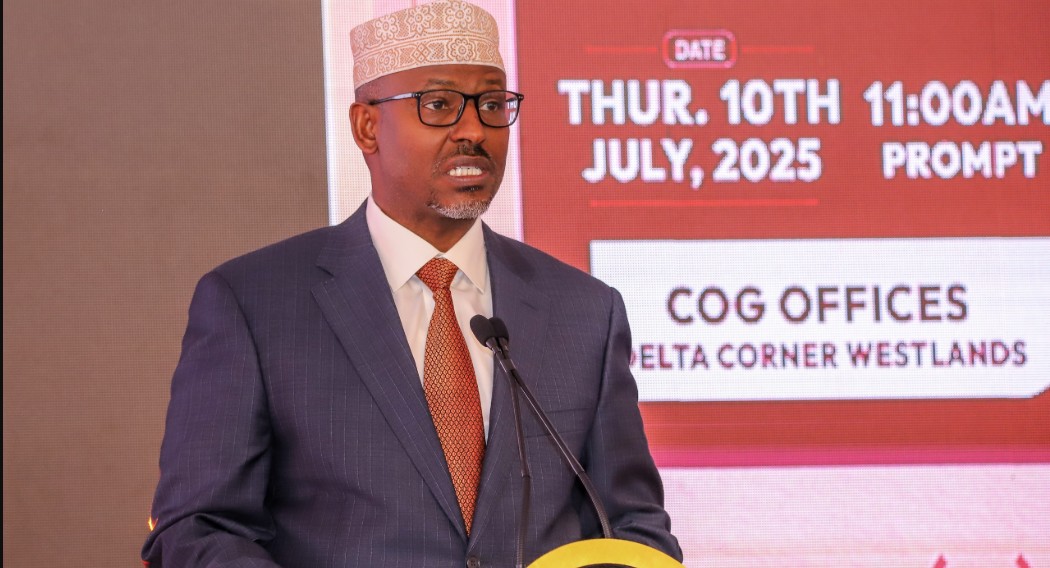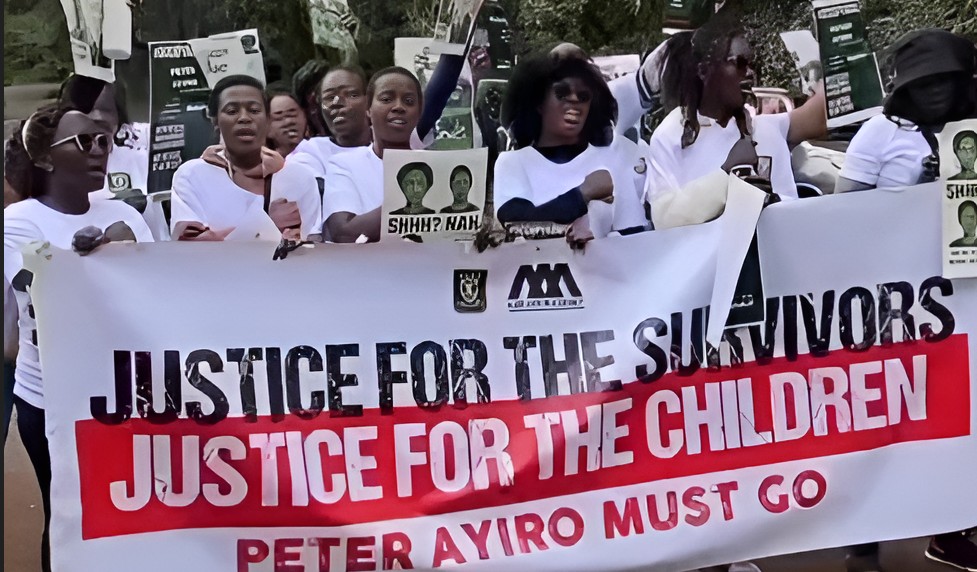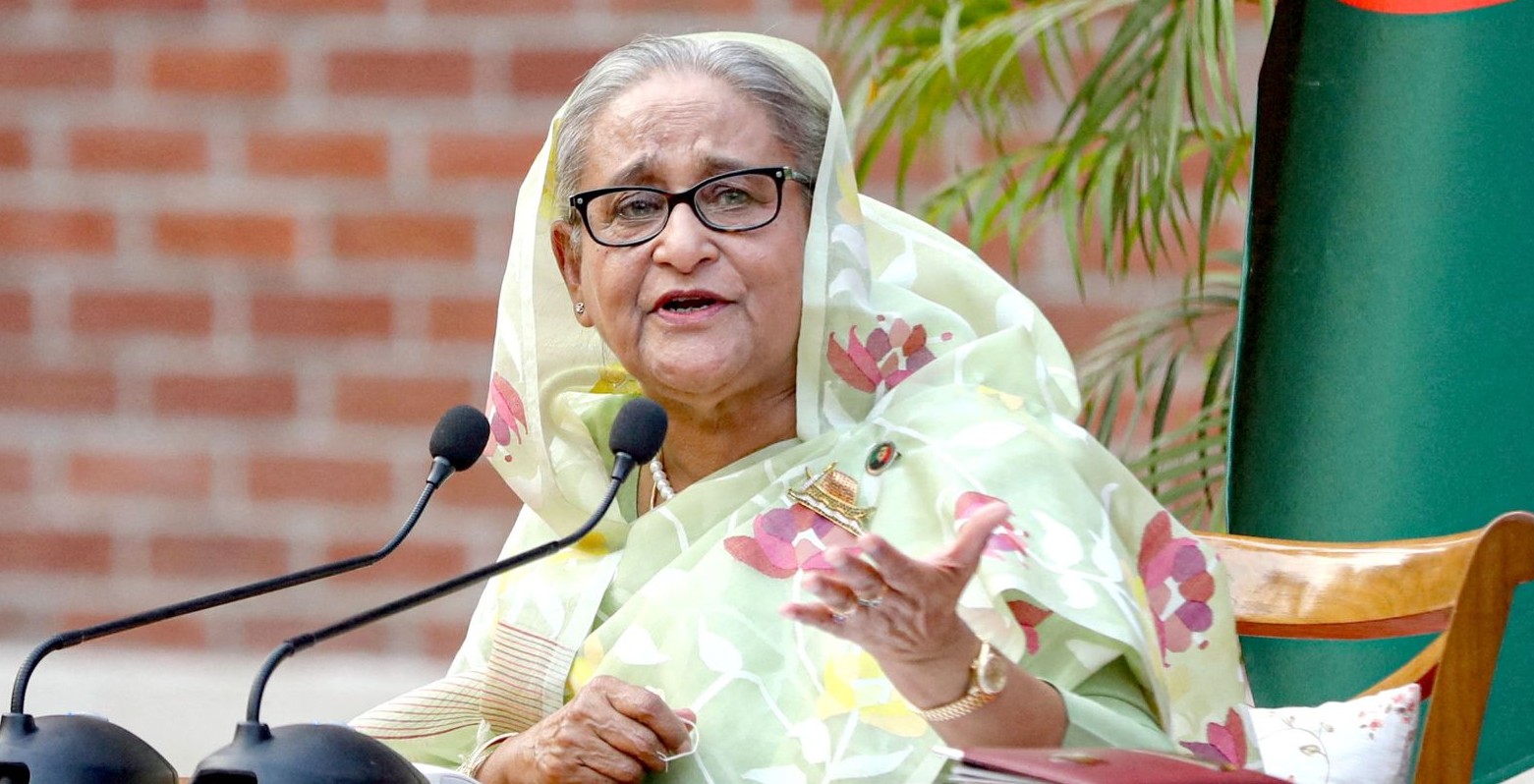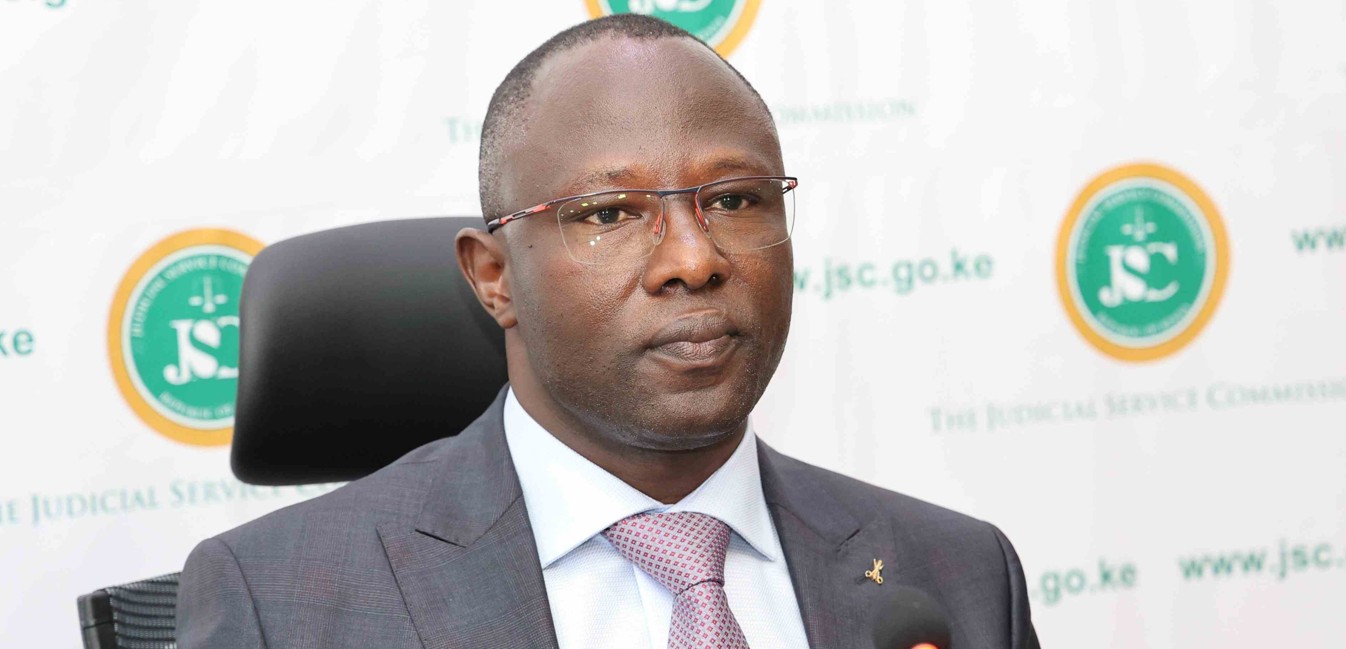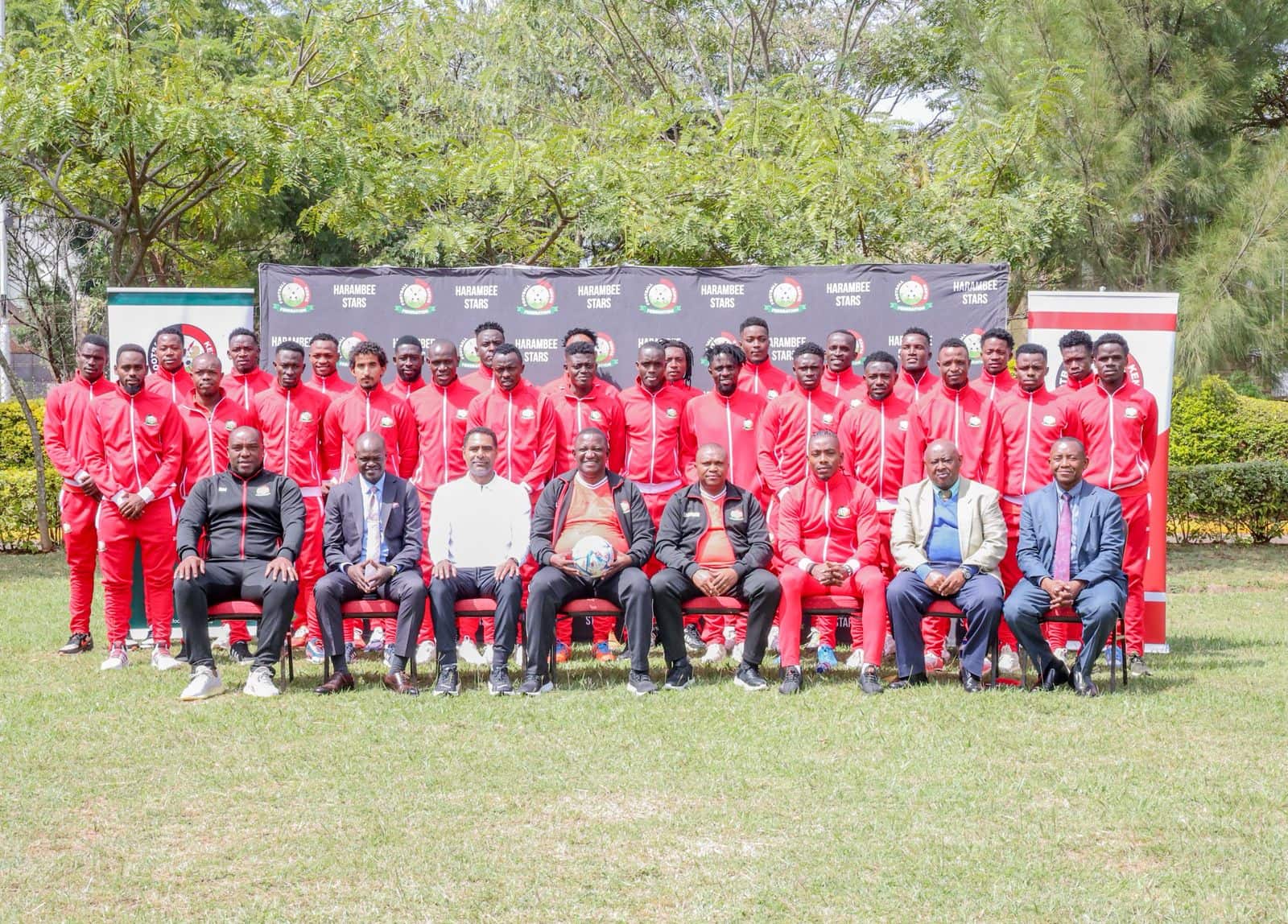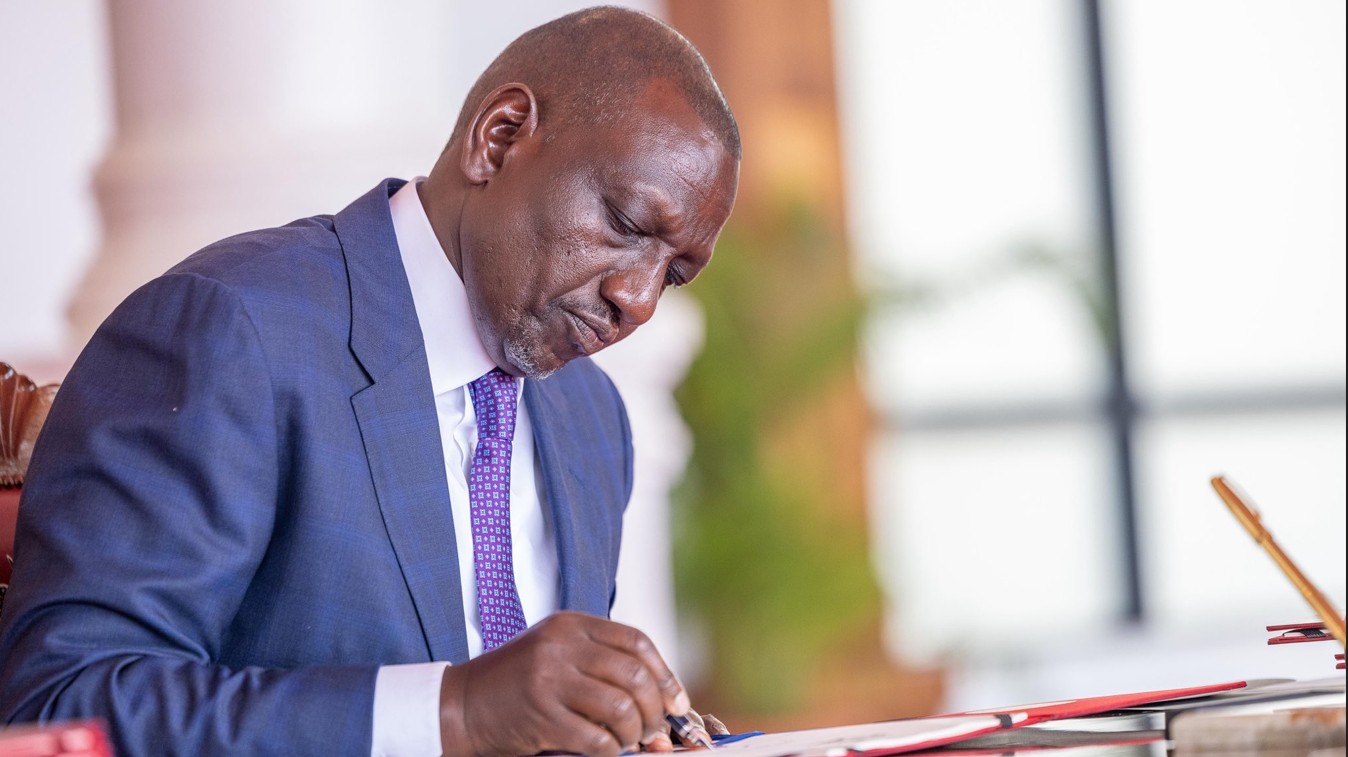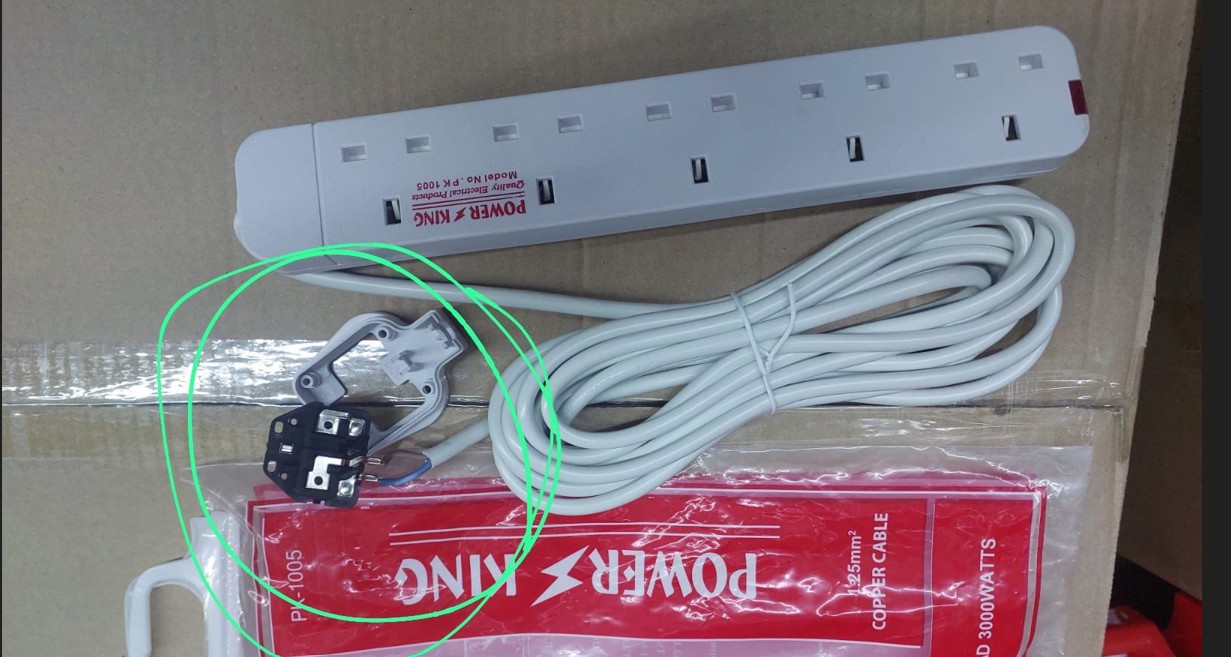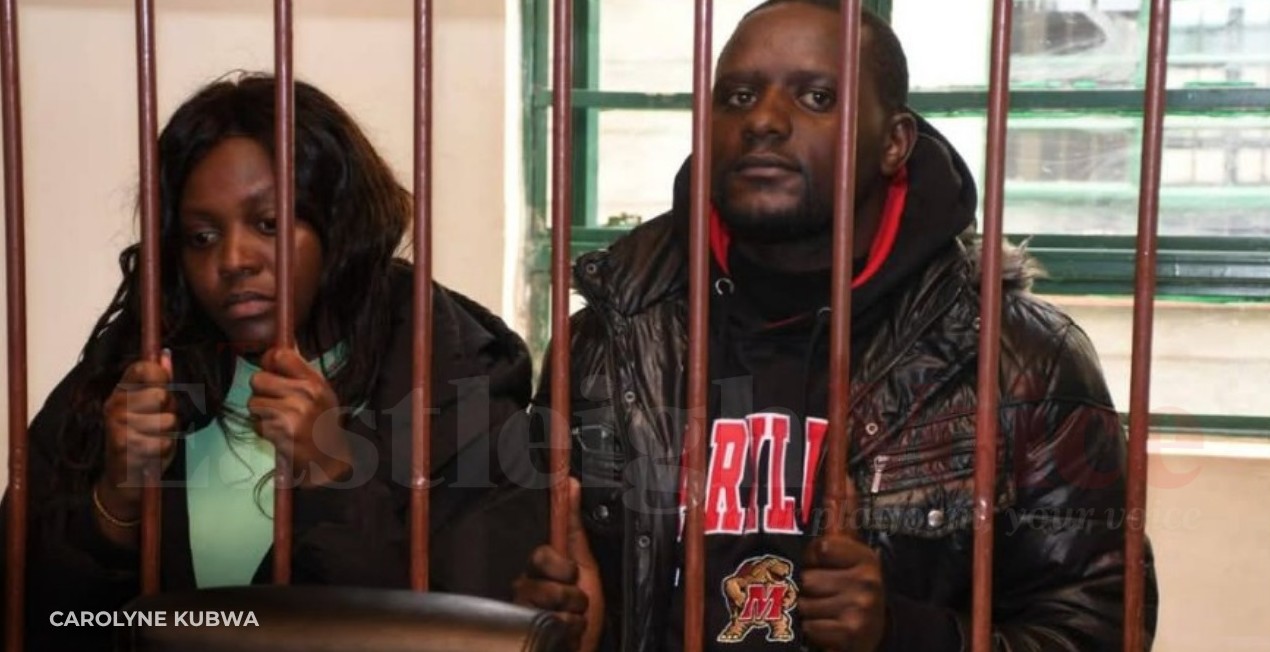Somalia's international partners back constitutional review efforts
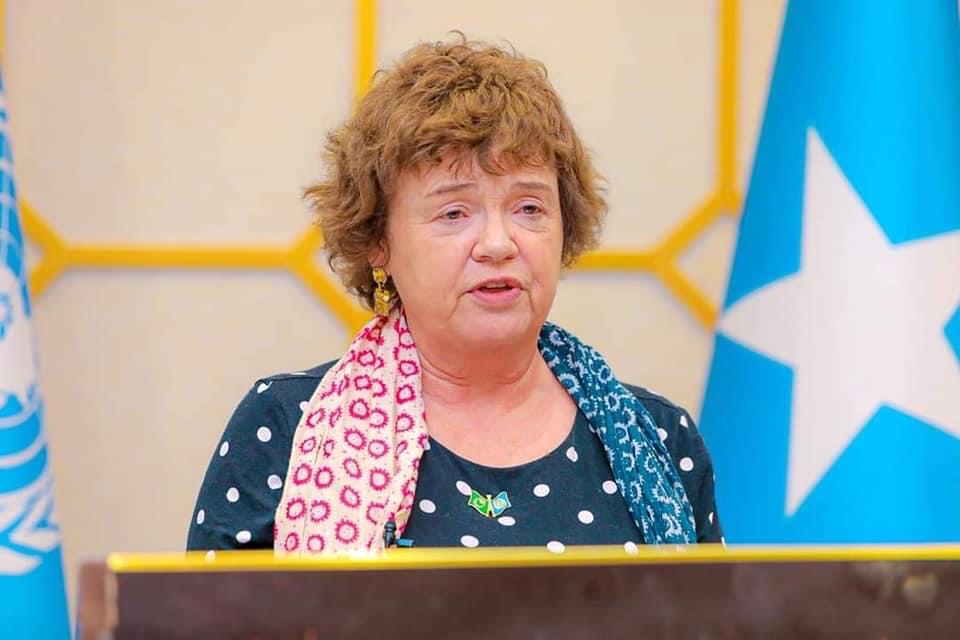
In a joint statement, the country's allies said they remain dedicated to collaborating with Somalia as it fortifies its position on the global stage.
The international community in Somalia has expressed support for the ongoing review of the Federal Government of Somalia's constitution by the Federal Parliament to uphold international and regional standards.
In a joint statement, the country's allies said they remain dedicated to collaborating with Somalia as it fortifies its position on the global stage.
More To Read
- Somalia's ex-President Mohamed Farmaajo warns of political instability, urges dialogue to address political tensions
- Journalist’s memoir reveals story of Somalia’s resilience
- Somalia President opens to talks with Al-Shabaab
- Somalia President Hassan Sheikh praises Eastleigh's transformation during visit
- Puntland forces seize cache of weapons in major security operation
- Somalia president meets Turkey spy chief days after naval ship's arrival
The House of the People and Senate, during a joint session of parliament, amended four articles of the constitution receiving unanimous approval, ushering in changes such as instituting a five-year presidential term and curbing the authority of the prime minister on Saturday.
These alterations also introduce the concept of three national political parties and stipulate that the forthcoming president will be elected through a direct, one-person, one-vote system.
"Somalia's commitment and steadfast resolve to finalise the Constitution is commendable, and we urge all stakeholders to redouble their efforts for consensus," noted segments of a statement from the members of the international community.
They acknowledged the government's determination to propel forward the process of finalising the Constitution.
"We eagerly anticipate future collaboration with Somalia as it bolsters its global presence," the statement added.
The partners urged all stakeholders to intensify their endeavours to reach a consensus through an inclusive approach.
The statement highlighted the importance of ensuring that the constitutional review process represents the diverse voices and interests of the Somali populace.
Ratified provisions
One of the ratified provisions of the constitution mandates the creation of both a president and a prime minister's office, granting the president the power to appoint and dismiss the prime minister.
Previously, the constitution stipulated that the president nominate the PM, subject to a parliamentary vote of confidence. Parliament also possessed the authority to remove the PM through a vote of no confidence.
Additional provisions establish a five-year tenure for government bodies and designate regional state presidents as leaders.
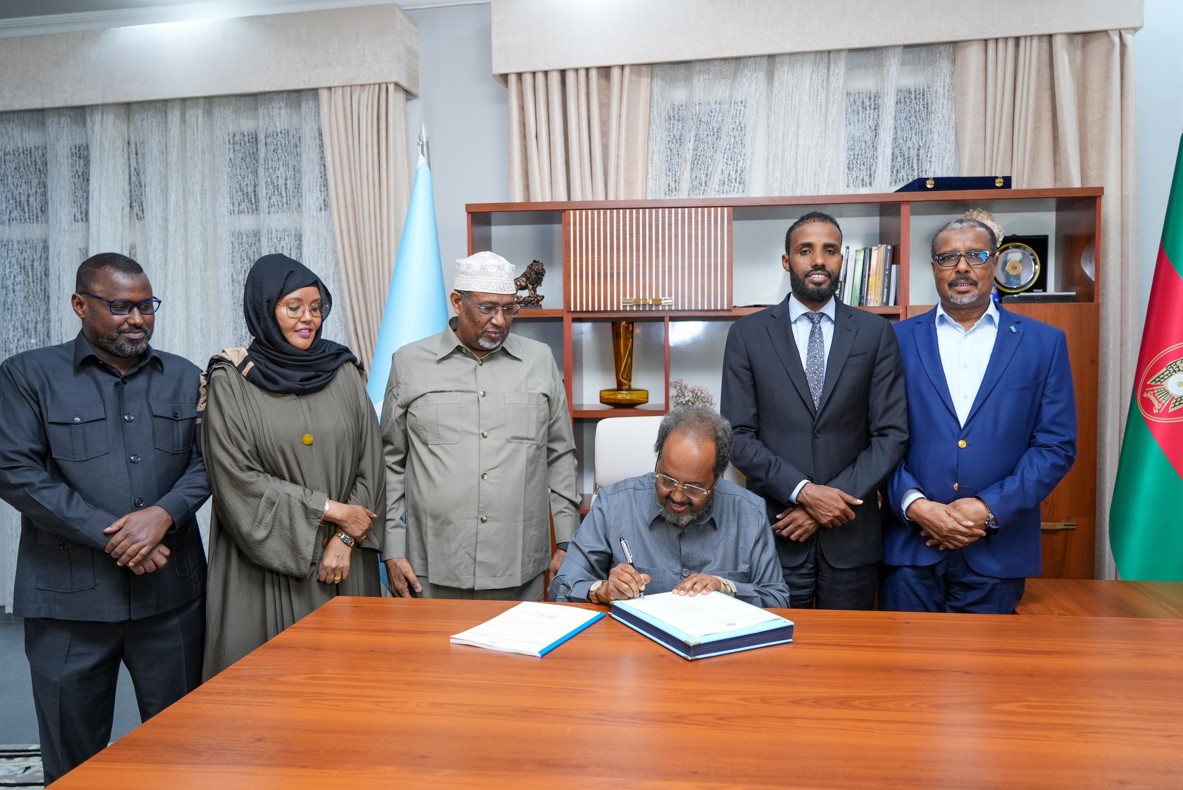 Somali President Hassan Sheikh Mohamud signs into law the four amended chapters of the constitution, following their approval by both houses of Parliament, at Villa Somalia in Mogadishu on March 31, 2024. (Photo: Villa Somalia)
Somali President Hassan Sheikh Mohamud signs into law the four amended chapters of the constitution, following their approval by both houses of Parliament, at Villa Somalia in Mogadishu on March 31, 2024. (Photo: Villa Somalia)
The amendments also introduce three national political parties and declare that the next president will be selected via a direct, one-person, one-vote system.
Other Topics To Read
- Regional
- Somalia
- somalia president hassan sheikh mohamud
- Puntland State somalia
- somalia constitution review
- somalia constitutional reforms
- somalia constitution
- somalia constitutional amendments
- Puntland President Said Deni
- Somalia's international partners back constitutional review efforts
- News
The endorsing partners include the African Union Transition Mission in Somalia (ATMIS), Belgium, Denmark, Djibouti, Ethiopia, European Union, Finland, Intergovernmental Authority on Development (IGAD), Ireland, Italy, Kenya, League of Arab States (LAS), Norway, Sudan, Sweden, Türkiye, United Kingdom, United States, and United Nations.
Their collective support underscores the international community's commitment to aiding Somalia's journey towards peace, stability, and democratic governance.
It also reflects the shared belief in the importance of upholding human rights principles and fostering inclusive political processes in Somalia.
The statement follows Puntland state of Somalia's announcement of its withdrawal from Somalia's federal structure after Parliament passed proposed amendments to four chapters of its constitution in a unanimous vote, despite Puntland's objections.
A Council of Ministers affirmed Puntland's decision in a statement on Saturday, citing concerns over the Federal Government's move to invalidate the 2012 constitution ratified in Mogadishu and replace it with a new one perceived to favour specific interests.
The decision came after a cabinet meeting in Garowe, chaired by Puntland President Said Deni, where the region reiterated concerns about potential harm to Somalia's unity and stability.
Dialogue process
The United Nations envoy to Somalia, Catriona Laing, who engaged in discussions with Puntland President Said Deni at State House, expressed satisfaction that Puntland's leaders were willing to participate in dialogue to resolve their issues on Sunday.
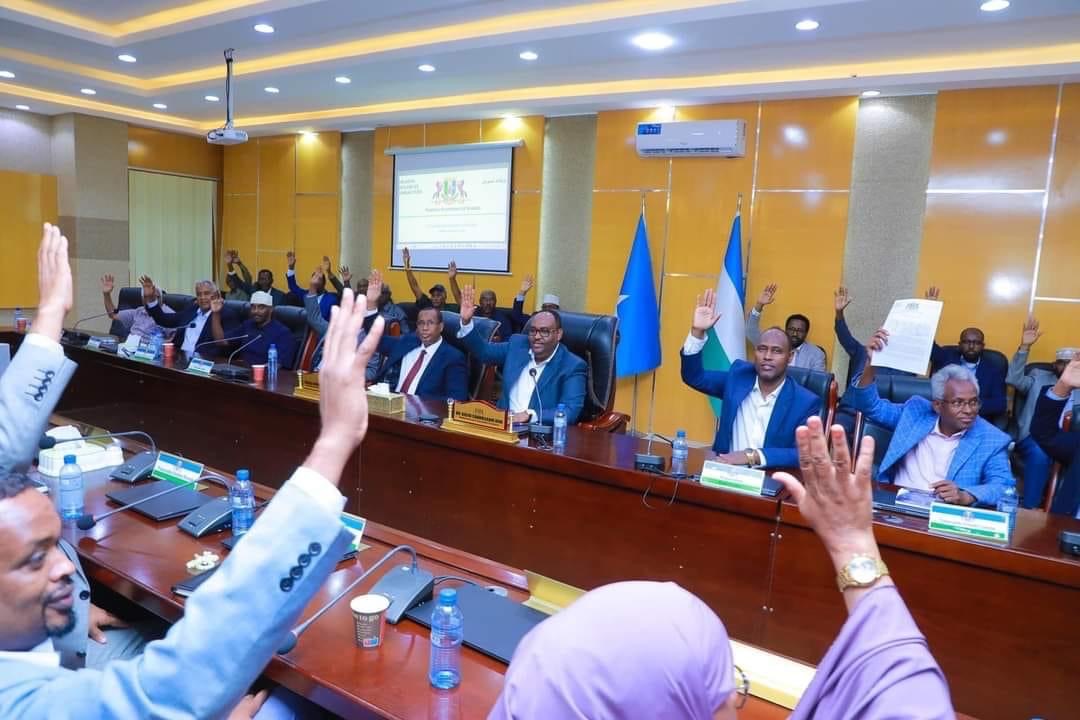 Putland President Said Deni chairs an extraordinary session with the Puntland Council of Ministers in Garowe to discuss the Federal Parliament's constitutional amendments. (Photo: PLSH)
Putland President Said Deni chairs an extraordinary session with the Puntland Council of Ministers in Garowe to discuss the Federal Parliament's constitutional amendments. (Photo: PLSH)
"I was very pleased to hear from the President that he is committed to try and find a way through this to ensure dialogue can continue with the federal government," she said during a media conference in Garowe, where she met Said and discussed Puntland's concerns.
She emphasised that talks would ensure an inclusive process, unify the country, and pave the way for the constitution, at the federal level, to delineate the rules of government while granting autonomy to federal member states.
Ambassador Catriona Laing thanked President Deni for his openness to finding solutions to the current deadlock.
"And we, the UN, through my good offices, we are here to help find a way through this," she said.
"The future of Somalia is at stake. The country, which has so much potential, cannot move forward without the full and inclusive participation of Puntland."
Puntland's stance has set the stage for a potential standoff between Somalia’s five regional states and federal authorities in Somalia.
The state, along with two former presidents, Mohamed Abdullahi Farmajo and Sharif Sheikh Ahmed, opposed the constitutional amendments, citing a lack of consensus among political stakeholders.
The ongoing federal constitutional process commenced in 2002 in Kenya during the IGAD-led peace process. In 2012, the current provisional constitution garnered approval from 825 delegates across Somalia.
Since then, the process has faced delays primarily due to a lack of consensus, and it was only on Saturday that Parliament approved amendments.
As of now, only five articles in four out of the 16 chapters of the constitution have been amended, addressing topics such as freedom of expression, women's representation, the leadership system, the number of political parties, and the composition of the electoral commission.
Parliament is expected to review and pass the remaining chapters.
Top Stories Today


